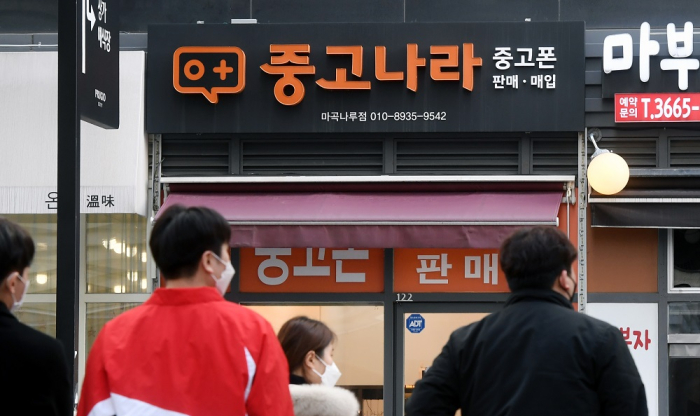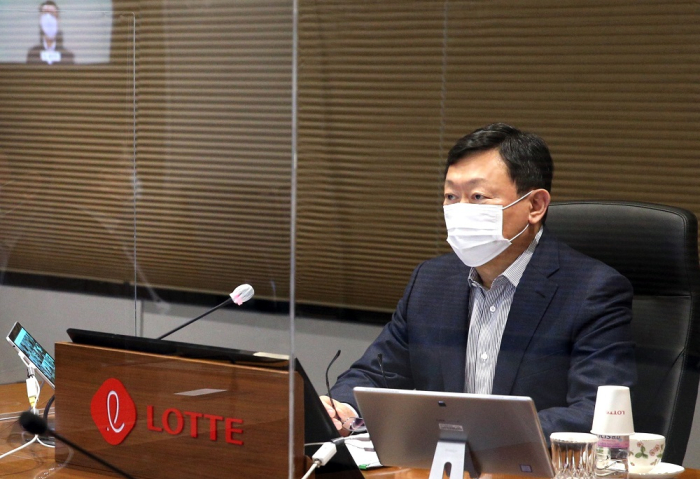M&As
Lotte buys S.KoreaŌĆÖs top secondhand e-commerce platform
By Mar 23, 2021 (Gmt+09:00)
5
Min read
Most Read

South KoreaŌĆÖs retail giant Lotte is expanding its presence in the e-commerce sector with the acquisition of Joonggonara, the countryŌĆÖs largest online marketplace for used items. Lotte has also recently entered the race to purchase eBay Korea through its affiliate Lotte Shopping.
Lotte has completed the joint acquisition of a 95% stake in Joonggonara, together with Eugene Asset Management and NH Securities-Opus Private Equity, at 115 billion won ($102 million) according to a banking source on Mar. 23.
The investor within Lotte Group is Lotte Shopping, which invested 20 billion won ($17.7 million) in the deal. Lotte Shopping is the only strategic investor (SI) among the group of investors.
As a strategic investor, Lotte Shopping owns call options that grants it the right to buy shares of other financial investors (FIs). In other words, Lotte Shopping can become the largest shareholder at any time.
Lotte will become KoreaŌĆÖs largest e-commerce company in terms of annual payment transactions if it succeeds in purchasing eBay Korea as well as Joonggonara.
The domestic e-commerce market is led by Naver with an annual transaction of 27 trillion won ($23.9 billion) and Coupang with 22 trillion won ($19.5 billion). But the successful acquisition will give Lotte an upper hand with its own channel Lotte ON at 7.6 trillion won ($6.7 billion) and eBay Korea at 20 trillion won ($17.7 billion).
The recent series of aggressive actions taken by Lotte is interpreted as a strategic decision by the groupŌĆÖs top management to create new growth engines to overcome business challenges.
Lotte Group saw negative growth in recent years, with its revenue shrinking from 84 trillion won ($74.3 billion) in 2018 to an estimate of less than 70 trillion won ($62 billion) last year, largely due to lack or failure of business diversification.
LOTTE EYES TOP POSITION IN E-COMMERCE
LotteŌĆÖs strategic decision to acquire Joonggonara is mainly driven by the fast growth of the online secondhand market in recent years. ┬Ā
The online market size for secondhand items has been growing rapidly from a mere 4 trillion won ($3.5 billion) in 2008 to around 20 trillion won ($17.7 billion) last year.
Similar overseas platforms for used items have also received market attention.
The American platform Nextdoor, planning an IPO this year, was valued at $5 billion as of October 2020, while JapanŌĆÖs Mercari saw its share price skyrocketing from 1,500 yen to 5,420 yen within a year of its IPO.
Secondhand platforms have a business model distinct from those of large platforms such as Amazon, Coupang and Facebook. The former group focuses on values such as trust, bonding and locality, while the latter centers on expanding interpersonal connectivity and the commercial transaction itself.
LotteŌĆÖs long-term goal is to create business synergy by applying its current retail and logistics capabilities to the newly acquired platform.
For instance, LotteŌĆÖs various offline spaces such as department stores, hypermarkets, convenience stores, cinemas and theme parks can be used for the safer in-person transaction of secondhand items.
ŌĆ£Once a platform forms a strong, large user base, the number of new businesses that can be added to the platform is limitless. The platform can add online streaming as a service or can transform itself as a retail channel that sells Lotte products at a discounted price,ŌĆØ noted a retail industry official. ┬Ā
KEY DECISION MAKERS WITHIN LOTTE GROUP
Lotte Chairman Shin Dong-bin himself is known to be leading the groupŌĆÖs strategic direction regarding business diversification.

ShinŌĆÖs office is located on the 18th floor of the Lotte World Tower in Seoul. On the same floor sits the Lotte Corporate Innovation Office, responsible for designing the groupŌĆÖs future outlook since its establishment in August 2020.
The innovation office is led by Executive Vice President Lee Hoon-ki, an M&A expert, who puts forward potential business opportunities to Chairman Shin for his final decision.
Earlier this year, retail industry insiders projected that Lotte would adopt a growth strategy focusing on its chemical business, while only implementing internal restructuring on Lotte Shopping, the groupŌĆÖs retail arm.
But Chairman ShinŌĆÖs comments made during the CEO-level meeting on Jan. 13 changed that direction, according to an industry source.
At the meeting, Shin specifically pointed out that the groupŌĆÖs e-commerce business, the first mover in Korea but having lost its market leader position, needs a more aggressive approach. Lotte in 1996 launched the countryŌĆÖs first online shopping business under the name of Lotte Internet Department Store.
ŌĆ£Lotte is well aware of the recent big moves within the industry including ShinsegaeŌĆÖs alliance with Naver, a competitor at large, as a move to defend its turf against Coupang, as well as the recent race for eBay Korea acquisition. Lotte is likely to continue its way to eBay KoreaŌĆÖs main bidding, scheduled in late April or early May,ŌĆØ said an industry official.
An investment banking source also noted: ŌĆ£The Lotte Group may be thinking that if it doesn't grab the right opportunities this year in e-commerce, such as the eBay Korea acquisition, it won't ever be able to regain the upper hand in the fast-growing sector.ŌĆØ
The South Korean business community is paying close attention to LotteŌĆÖs next moves outside the retail sector as well.
ŌĆ£Due to the rapid changes in the global business environment, top Korean companies like Samsung, Hyundai Motor, SK and LG are becoming agile, like startups. Lotte may have also entered a phase of a comprehensive revision of its business portfolio that relies heavily on traditional industries such as retail, chemical, F&B and hotels,ŌĆØ commented an industry official.
Write to Chae-Yeon Kim, Ji-Hoon Lee and Dong-Hui Park at why29@hankyung.com
Daniel Cho edited this article.
More to Read
-
 Share swapShinsegae, Naver ink $221 mn share swap to rival Coupang in e-commerce
Share swapShinsegae, Naver ink $221 mn share swap to rival Coupang in e-commerceMar 16, 2021 (Gmt+09:00)
3 Min read -
 IPOsCoupang CEO: S.Korean e-commerce market 'isn't small,' offers robust growth potential
IPOsCoupang CEO: S.Korean e-commerce market 'isn't small,' offers robust growth potentialMar 12, 2021 (Gmt+09:00)
5 Min read -
 M&AsShinsegae buys baseball club in quest for retail-sports synergy
M&AsShinsegae buys baseball club in quest for retail-sports synergyFeb 24, 2021 (Gmt+09:00)
3 Min read
Comment 0
LOG IN




